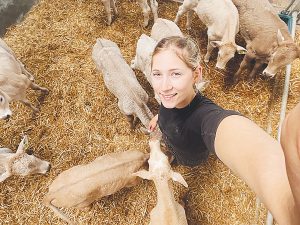
“They say good things take time, and Feds has been ratcheting up the pressure for this necessary step for many, many months,” Federated Farmers employment spokesman Chris Lewis said.
“Let’s hope the system is agile enough to get these people into New Zealand and out into workplaces by the time we need them — particularly for the super busy spring dairy calving season.”
The new settings include an increase in the current border exception for many different occupations, including assistant dairy farm managers, dairy herd managers and dairy farm assistants by 500 to a total of 800 for those earning at least the median wage plus $1 per hour. This equates to $28 per hour.
“The federation’s message to farmers is to take up these places,” Mr Lewis said.
“We know that with fuel and fertiliser price rises, concerns in some districts about supplementary feed and other factors, there may be a temptation to try and struggle through with workforce gaps.
“But just remember the stress that puts on you and the rest of the team, the health and safety factors, and the difficulties of rostering to give people decent time off when your staff complement is deficient.”
The meat worker border class exception cap will be extended by a further 500 workers on top of the previous agreed figure of 150 workers.
“There are very real meat supply chain constraints and while some districts are in drought, in other parts of the country farmers have possibly been holding back stock. More of them will send animals to the works to get down to wintering numbers and it will be very positive to close up workforce gaps so that plants can again operate at full capacity.”
Border class exceptions have also been approved for up to 300 silviculture forestry workers and up to 280 wood processors and manufacturers to enter the country.
























